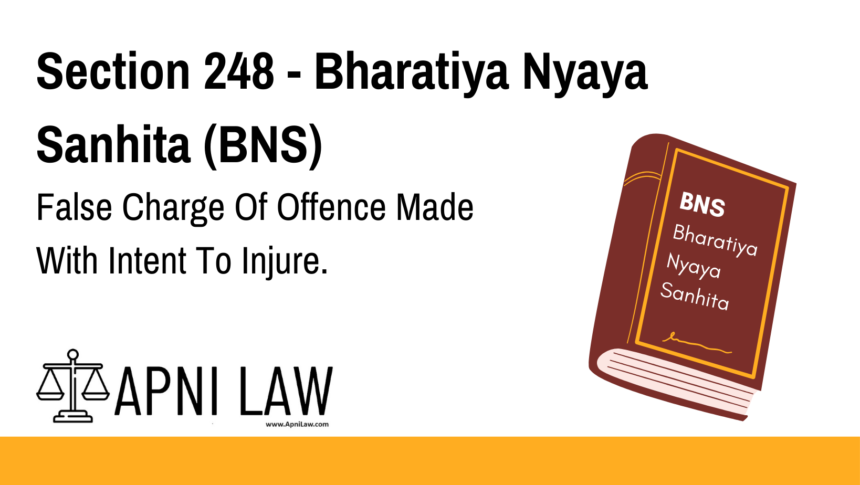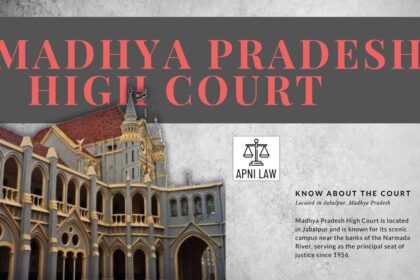Code: Section 248 BNS
Whoever, with intent to cause injury to any person, institutes or causes to be
instituted any criminal proceeding against that person, or falsely charges any person with
having committed an offence, knowing that there is no just or lawful ground for such
proceeding or charge against that person,—
(a) shall be punished with imprisonment of either description for a term which
may extend to five years, or with fine which may extend to two lakh rupees, or with
both;
(b) if such criminal proceeding be instituted on a false charge of an offence
punishable with death, imprisonment for life, or imprisonment for ten years or upwards,
shall be punishable with imprisonment of either description for a term which may
extend to ten years, and shall also be liable to fine.
Explanation of Section 248 BNS
What Does Section 248 BNS Cover?
Section 248 BNS punishes false accusations and malicious prosecution. It prevents people from misusing the legal system to settle personal disputes or harass innocent individuals.
Key Elements of Section 248 BNS
- Intent to Cause Injury – The accuser must intend to harm the accused.
- False Criminal Charge – The accuser files a case knowing it is false.
- No Lawful Ground – There must be no valid reason for the criminal charge.
- Two Levels of Punishment:
- For general false accusations: Up to 5 years imprisonment or ₹2,00,000 fine.
- For serious false accusations (death/life imprisonment cases): Up to 10 years imprisonment and fine.
Illustration
Example 1: False Theft Case
A and B are neighbors. A has a dispute with B over property. To take revenge, A files a false police complaint claiming that B stole ₹50,000 from his house. The police investigate and find that A’s claim is false. A is now liable under Section 248 BNS.
Example 2: False Murder Accusation
X has a personal grudge against Y. To ruin Y’s life, X falsely accuses Y of murder, leading to Y’s arrest. Since murder is punishable with death or life imprisonment, X will face a harsher punishment under Section 248 BNS – up to 10 years imprisonment and fine.
Common Questions and Answers on Section 248 BNS
1. What is the objective of Section 248 BNS?
- This section prevents false accusations and misuse of criminal law to settle personal grudges.
2. What are the key ingredients of this offence?
- The person must:
- Intend to harm another person
- Knowingly file a false criminal charge
- Have no legal basis for the accusation
3. What is the punishment under Section 248 BNS?
- For general false charges → Up to 5 years imprisonment or ₹2,00,000 fine.
- For serious false charges (death/life imprisonment cases) → Up to 10 years imprisonment and fine.
4. How is Section 248 BNS different from Defamation under Section 500 BNS?
- Section 248 BNS deals with false criminal cases.
- Section 500 BNS deals with false statements damaging a person’s reputation.
5. Can a person accused under Section 248 BNS be arrested immediately?
- Yes, filing a false criminal charge is a cognizable offence, meaning the police can arrest the accused without a warrant.
Conclusion
Section 248 BNS prevents false criminal accusations and ensures that innocent people do not suffer due to personal grudges. It plays a crucial role in maintaining the integrity of the justice system.
For more legal insights, visit ApniLaw today! 🚀








